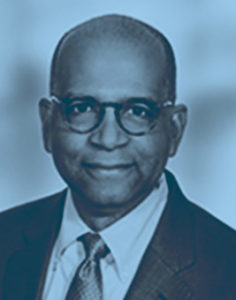
How to be Authentic, Whoever You Are
Can you be an authentic jerk and be successful? A surgeon with a terrible bedside manner can be both authentic and successful, but at what cost? Same with the administrator who rages yet runs a tight ship.
These questions point to two problems we’ve found with the whole idea of authenticity:
- People tend to conflate personal warmth with authenticity.
- Sometimes terrible people do very well in life.
Warm = Authentic …?
To the first point, warmth and authenticity are linked. Roberta Wait, EdD, and her colleagues said that the characteristics of someone perceived as an authentic leader include:
- Natural openness
- Hopefulnes
- Optimism
- Resilience
- Warmth
But what about those of us who aren’t naturally warm? Can someone who is reserved or even a little cold, someone who is uncomfortable speaking on stage or awkward in one-on-one conversations, be viewed as authentic?
Yes. (We hope you saw that answer coming.)
But why should this matter for healthcare leaders?

Schatzlein
Dr. Michael Schatzlein, principal at The Schatzlein Solutions Group, explained a critical context:
“If there is a place where authenticity is needed, it’s in a health leader’s relationship with physicians. Over-communication is key, and you can’t recover from condescension or a lie.”
Schatzlein gets this because he’s lived it. Having served as a cardiac surgeon and a hospital CEO at health systems including Ascension and CHS, he has a clear window into both parts of the equation. He knows that integrity and transparency are particularly important in physician relations.
“Nowhere else in the world is there a culture like that of U.S. physicians, and their relationships with health systems are unlike anything in any other industry,” he said. “Physicians have a cynical attitude toward administrators, which administrators as a profession have earned over decades of disdain and condescension.”
Alignment among all stakeholders is critical to transforming our healthcare system into something more sustainable, and getting the executive-physician relationship back on track is an important piece of that change.
With that in mind, here’s what authentic leadership looks like in healthcare – in the boardroom and in the OR – regardless of personality:
Be the same, always
In simple terms, the key to authentic leadership is not baseline personality – warm or cold, charismatic or reserved – but a consistent application of that personality. Different leaders will act and lead differently than each other but there shouldn’t be Jekyll and Hyde behavior from an individual. (Here’s a more technical discussion if you’re interested).

Williams
Herman Williams, MD, MBA; Managing Director and Chief Physician Executive of BDO Healthcare Advisory Practice, put it this way:
“I don’t think you have to be a certain type of person. You can be charismatic, outgoing or an introvert, and you can display different leadership styles at different times. However, If I were a reserved person and there was a crisis, I would have to speak out and be more outgoing than I typically am in order to effectively handle the crisis. I just find it easier to just be the same all the time in all situations. But that doesn’t mean people who are reserved or introverted are not authentic.”
Volatility is a no go. A child with a volatile parent will live in fear, struggling to make decisions because he isn’t sure how his guardian will respond. We’ve seen volatility in the financial markets throughout 2019 in part because of inconsistent and unpredictable statements by national leaders.
On the other hand, consistency anchors both a leader and his team for any situation. Williams has seen this in his life. He does his best to communicate clearly with his team and respond to challenging situations by listening with empathy. It’s a kind, compassionate thing to do, and it also has implications for the business.
“If they say, ‘I feel terrible,’ then I know what to expect in terms of their participation, their work product, etc.,” he said,
Lean on experience – and experiences
For Williams, consistency is easier to achieve because of his own catastrophic experiences. He has suffered from two cardiac arrests and been resuscitated by bystanders both times.
“It gives you a totally different perspective,” he said. “I’ve really had a unique opportunity to experience life by being the recipient of some incredible humanistic gestures that have kept me alive. That has caused me to appreciate life, really understand my purpose, really make a conscious decision to devote my life to try and make a difference in other people’s lives.

Sgarlata
Lisa Sgarlata, Chief Patient Care Officer and Chief Nurse Executive at Lee Health, also defines her approach to authentic leadership in the context of several painful personal experiences.
First, as a terrified five-year-old about to undergo surgery, she witnessed her surgeon leave the OR and walk alongside her, pushing her bed down the hall. “It made a difference that I remember to this day,” she said.
Later, as an adult, she left a physically abusive relationship. “My healing occurred at the same time I was working to help patients heal,” she recalled.
And more recently, she suffered the unimaginable loss of a son due to substance abuse. “It makes you stop and reflect, ‘This is why I do what I do. This is why I have to make a difference,’” she said. “There are people behind these illnesses and people behind the reasons that they come to us, and we really need to understand why.”
The effect of authentic leadership on the organization
So what has been the result of Sgarlata’s decision to learn from these experiences and lead with authenticity? It’s alignment of her team towards providing better, ever-more compassionate care.
“There’s a trust there,” she observed. “It’s not just somebody telling them what to do, but that I’m true to who I am and true to what I talk about. And then, when I’m asking them to do something it actually helps build that relationship.”
Sgarlata’s personal philosophy matches that of the relatively new management team at Lee Health. Recognizing the need to strengthen trust, communicate more effectively with employees and build consensus around new strategic initiatives, the C-suite facilitated a series of townhall-type workshops with every leader within the organization. Preliminary data on the effect of those meetings is positive. Signs point to a more engaged workforce, greater trust in executive leadership and increased commitment to the health system.
And while trusting relationships and happy people are good things, healthcare is still a business that needs those feelings to translate into the bottom line. Authentic leadership does, in fact, improve an organization’s operations. The trust that is built encourages everyone to speak up, leading to creative ideas and fewer mistakes.
Feedback also comes more rapidly in an environment where consistency and trust are baked in. An authentic leader will inspire her team to speak up quickly, knowing they’ll be heard. Combined with the new ideas, rapid analysis can lead to quicker course correction.
Research has also shown that staff retention and loyalty to an organization increase when management practices authentic leadership. (More on that here and here). Not much data exists to draw a direct line between authentic leadership and patient outcomes. Even so, the possibility of improved employee performance should be enough to make any CEO sit up and take note.
Put this in the context of environmental services staffers, for example. This group is at the front of the front line of mitigating infection. A frustrated, unengaged environmental service tech may do an adequate job because, well, that’s the job. But a happy, cared-for tech who works within a unit guided by an authentic leader will be more likely to go above and beyond, suggest tweaks to infection control protocol and ultimately provide a better patient experience.
Tactics for authentic leaders
Be like a doctor: Look past signs and symptoms to root causes
Williams starts every Monday by checking in with his team, asking what each person is working on and how they’re doing personally. That’s where he learns what to expect from everyone and what they need to succeed.
Sgarlata described an experience in a previous job when she was told to fire a nurse who had supposedly been displaying a bad attitude. Instead, she sat down with the nurse and found out the woman had been dealing with a host of difficult circumstances at home. As a result of the conversation, the nurse “was able to self-reflect and see herself in her patients – providing that connection in relating to her patients […] and she did very well.”
Maintain a long-term perspective
A long-term perspective shows your commitment. As Williams said, “If you don’t apply tactics consistently and for the long-term, people will assume you’re just trying the latest trendy thing, not trying to make lasting change.”
Go back to your roots
Two things here.
One: Put patients first. The industry itself isn’t going to change overnight to be entirely focused on the patient at a personal, individual level. But healthcare leaders can. It starts with changing the way we talk about our industry by starting any analysis with what’s best for the people coming through the door to receive care. Changing how we talk changes how we think, which changes how we act which changes how our organizations operate.
Two, Sgarlata recommends literally going back. In her case, this means walking down to the ED, the unit where she started her career. She answers the phone and spends time with her team. (She was clear that she no longer starts IVs, however.)
“It reminds me why I did this in the first place,” she said. “And the staff look at me like, ‘You’re not here every day anymore.’ But we can have that conversation. So, I can go back and re-center myself and they can count on me to be the person they need.”
The Authentic Jerk
We’re compelled here to address a point from the beginning of this article.
When you talk to Sgarlata and Williams, it’s clear that their core is helping others. They’re both authentic and successful because of it. And yet we see people acting badly and still doing well professionally.
Can a physician, or CEO, or CFO who doesn’t care about people fulfill their role? Are we assuming that, in healthcare at least, leaders are answering a calling in the Sgarlata/Williams mold?
Short – and very generalized – answers to those questions: No and Yes.
Research around success and behavior is nuanced. But “Why It Pays to Be a Jerk,” a magnificent article from the June 2015 issue of The Atlantic, sums it up this way: “Being a jerk will fail most people most of the time.”
While jerks can and do rise to positions of power, and some of the jerk traits (willingness to push boundaries, selfishness, aggressiveness…) can help get them there, it’s a precarious position. For one thing, success takes adaptability. Some situations need a gentle touch, others a firm hand.* A jerk will struggle to adjust. (This is the wrong side of authentic and consistent).
In addition, jerks don’t have backstops. An unpleasant leader without trust and social capital will have nowhere to turn when things get rocky.
Everything in life is a bell curve
And yet, despite the fact that we all know that being a jerk is not the right way to go, we still fixate on the examples of successful jerks. The problem is that we’re not those people. We look at people on the far end of the spectrum and make them into the norm. Steve Jobs (highlighted throughout that Atlantic article) had an exceptional blend of charisma, vision, and drive. Most people don’t. He also learned not to be as much of a jerk later in life.

Drane
It’s understandable but dangerous. Alexandra Drane, CEO and Co-Founder of Rebel Health and ARCHANGELS put it this way:
“There’s always a unicorn, there’s always somebody who bucked the trend. And I feel that these unicorn situations are so over-perpetuated in the media. We believe that we can be the next unicorn.”
Chances are, we can’t. So we’re better off being tough and kind, authentic and adaptable.**
*Ah, isn’t “turned on or off” changing behavior? Isn’t that inauthentic? Not exactly. Again, the nuance goes beyond what we can address here. But in general, being authentic doesn’t mean you have to be monotone. It’s hard (impossible?) to succeed without adaptability. Different situations call for different responses, which is different than being volatile and unpredictable. Therefore, authentic, successful people can be direct, passionate, and tough without being a jerk. “Kind” and “Firm” are not mutually exclusive.
**It’s worth noting the idea that in some cases – surgeons being a prime example – the ability to put distance between the personal/emotional and the technical aspects of the job can be helpful. A surgeon must be able to focus on performing a flawless surgery and emotion could get in the way of that happening. Therefore, a cold, un-empathetic persona can be useful…or at least not as detrimental as it might be in other roles.
